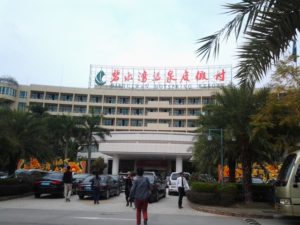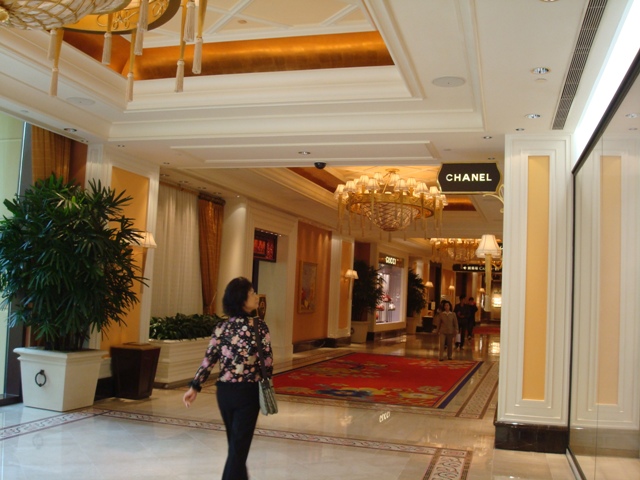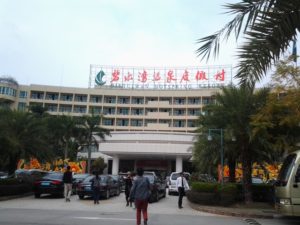China’s Hotel Industry. China, with the largest population of the world, is in huge economic transformation due to the fastest-growing middle-class. Nowadays the number of middle-class people in China has reached 500 million and in 2020, this figure is expected to increase up to 1.75 billion. Declined growth in the real estate market and fixed asset investment has led to a notable change in the hotel industry. International luxury hotel chains are making more efforts to take advantage of the growing Chinese middle-class with luxury desires. Also, in these days, small luxury hotel or boutique hotel has gradually become popular in China, which is not as majestic and unified as large international chains, but draw consumers by their delicate and characteristic hotel culture. Indeed, hotel investors have become more sensitive to financial returns and thus have started to invest on select-service hotel products. This article is intended to introduce the new trend of the luxury resort market in China.
China’s Hotel Industry Overview
 A recent study shows that the average occupancy rate of Chinese hotel in 2014, has reached more than 65%, regardless of over 5% supply increases. And this upward trend in occupancy rate maintained in the last quarter of 2015.
A recent study shows that the average occupancy rate of Chinese hotel in 2014, has reached more than 65%, regardless of over 5% supply increases. And this upward trend in occupancy rate maintained in the last quarter of 2015.
The hotel industry in China has seen huge growth, resulting in a $44 billion business. Some analysts suggest the market is reaching a saturation point, but when comparing hotel penetration rates in mature markets China appears low with 4 rooms per 1000 capita. The mid-scale segments will see the most significant growth in tier 2 and tier 3 cities. A Large number of tourism projects and the outstanding number of high-tech and industry parks will also drive the demand. Recently large-scale meetings, exhibitions, incentives, and demand from state-owned companies has decreased in large amount due to the change of relative policies issued by the China government. But domestic corporate and leisure free and independent travel demand are on the rise. In China, major cities and major secondary cities show strong performance, including Beijing, Shanghai, Guangzhou, Shenzhen, Wuhan, etc. However, other less big cities face enormous challenges, especially the problem of oversupplies, such as Dalian and Xi’an. It is also believed that the proportion of international demand will continue to decline. Instead, in terms of nationality, domestic demand will keep dominating.
Indeed, Chinese outbound travelers will continue to increase in number and look for familiar brands. Brands from big groups such as Marriott, InterContinental, and Accor are still building hotels in China. Regional and domestics entrants will also emerge to seize the market opportunities before it consolidates further.
The Emergence of Boutique & Lifestyle Hotel in China
In 2012, the leading brands with over 10 deals signed were fifth-star brands. After the downward hotel performance trend and the resultant slowing down of the hotel development wave, more hotel investors have changed their strategy. They were more willing to turn their interest to brands that require less investment and offer faster payback. In 2014, fourth-star level brands or some boutique hotels signed more deals than traditional market share winners such as Sheraton and Crowne Plaza. For instance, Emperor Hotel in Beijing, which is considered affordable and cost-efficient among Beijing luxury hotels. It has become one of the hottest places for foreigners to have a Beijing-style night.
China’s Hotel Industry: Changing Behavior
The players in the industry have also recognized the importance to build brand loyalty in China, a criterion that is even more important when knowing that Chinese consumers are more and more selecting and booking their accommodations by themselves through the internet. A recent study finds that about 70% of Chinese travelers use online travel sites for information gathering, with 58% of them booking their hotel on sites.
More Sophisticated Travelers
 A recent research indicates that Chinese consumers are intended to choose boutique hotels where room number may be far less than those of traditional five-star hotel chains. Most of those small luxury hotels have under hundred sets and some can even be less than 20 sets. Small size means excellent on privacy, low-density, as well as, elegance. Regarding the price, they are not inferior to five-star chain hotels, and sometimes even much higher, because of the better surrounding environment, the hotel building facilities, and the services provided.
A recent research indicates that Chinese consumers are intended to choose boutique hotels where room number may be far less than those of traditional five-star hotel chains. Most of those small luxury hotels have under hundred sets and some can even be less than 20 sets. Small size means excellent on privacy, low-density, as well as, elegance. Regarding the price, they are not inferior to five-star chain hotels, and sometimes even much higher, because of the better surrounding environment, the hotel building facilities, and the services provided.
In addition, those hotel developers are more diversified than ever. While some developers of real estate continue to take hotel components as their mixed-use developments, some other types of investors also step into the hotel development market, such as Internet technology companies, funds, insurance companies and peer-to-peer financial institutions.
To sum up, the market occupancy has increased steadily similar to China’s GDP growth. Under the present economic environment in China, the hotel industry will still experience a changing and restructuring industry regarding the market characteristics, segmentation, and characteristics. Options for the Chinese consumers will increase, as will the competition. A market that won’t stop innovating, it will be essential to tailor new models and concepts to meet the Chinese local demand.
Daxue’s Expertise in the China’s Hotel Industry
Given Daxue’s Consulting experience in the hospitality industries, the Daxue team is a leader in providing consulting services to the hospitality industry from international chain to small private Boutique. Daxue Consulting has conducted feasibility studies for a major player in the market by conducting rigorous market research and analysis of the business background to identify opportunities and trends of the market.
To know more about the China’s Hotel Industry, contact us at dx@daxueconsulting.com




